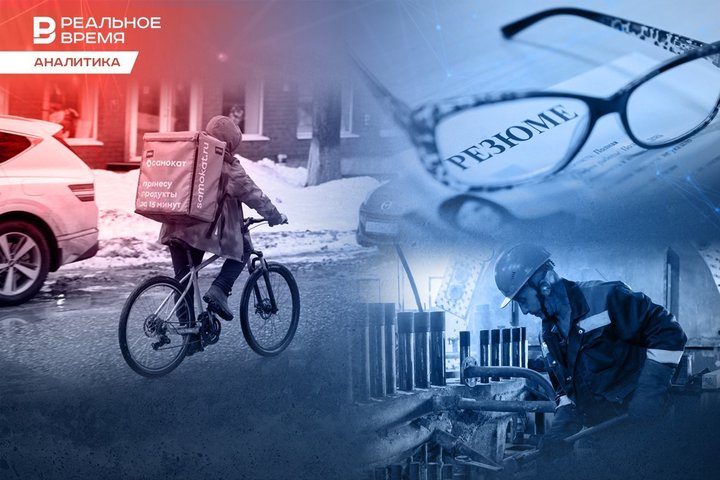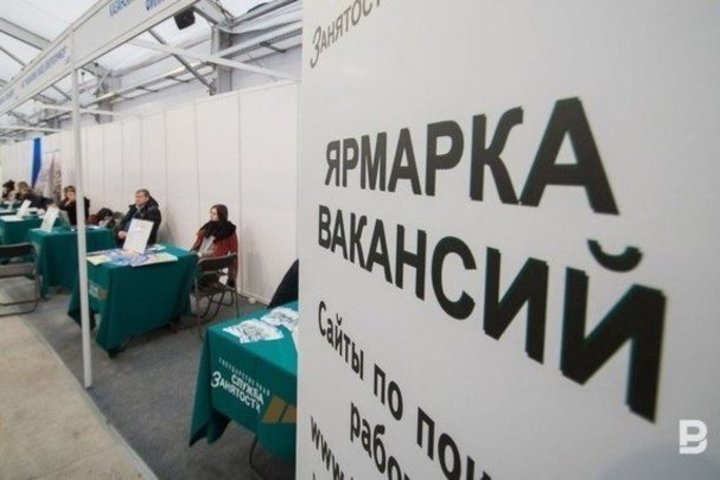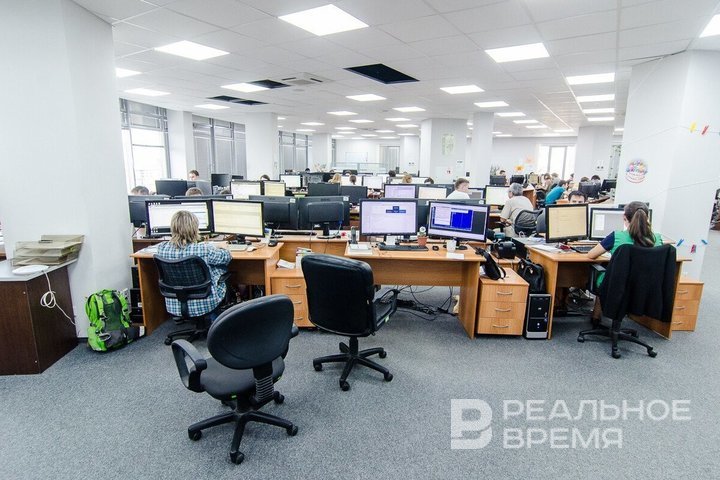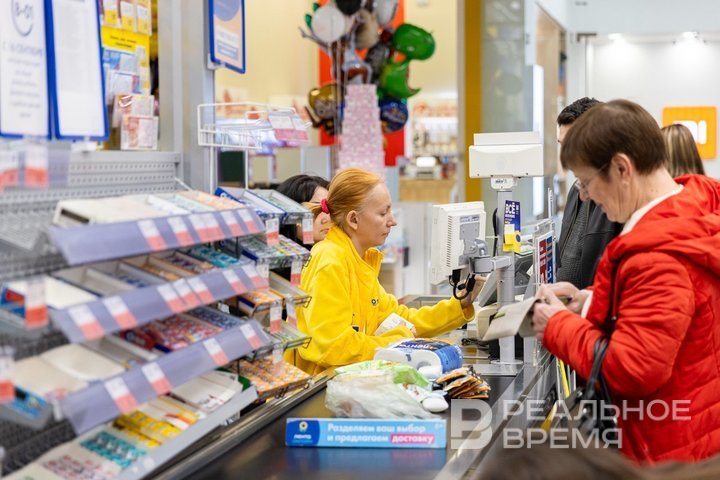‘Rising wages have lured people away’: spring labour market outlook
Experts record a steady increase in the level of competition among applicants

The level of competition among job seekers has increased in Tatarstan at the beginning of 2025, according to hh.ru. Simply put, the ratio of the number of resumes to the number of vacancies has increased. However, this dynamic should be interpreted correctly, experts warn. It's not that there are more unemployed people, but that the structure of the job database has changed. Russia continues to fall into a demographic hole, and the shortage of personnel in the country is not improving. How the labour market is changing — read in the review of the analytical service of Realnoe Vremya.
Shortages in retail, medicine, and pharmaceuticals
By early March, the hh index, which shows the ratio of the number of active resumes to the number of active vacancies on the market, reached 5.1. This is the highest rate in the last year. For comparison, in January 2024 it was 3.3, in February — 3.2, in March — 3.6. The index began to grow from about October last year and reached 4.7 by December.
Index values:
- less than or equal to 1,9 — an acute shortage of applicants;
- 2,0-3,9 — shortage of applicants;
- 4,0-7,9 — moderate level of competition for jobs, healthy ratio between employers and job seekers;
- 8,0-11,9 — high level of competition of job seekers for jobs, employer's market;
- more than or equal to 12 — an extremely high level of competition among job seekers.

Today, on the website of hh.ru, almost 160,000 resumes and 31,500 vacancies have been posted in Tatarstan. The average salary reached 70,000 rubles.
As you know, the labour market is heterogeneous: there are industries with a large shortage of personnel and those where competition among applicants is high. There is a serious shortage in Tatarstan in the areas of retail trade (hh-index — 1.4), medicine and pharmaceuticals (2.6), in the automotive business and sales (3.8). A moderate level of competition is observed in tourism (4.2), among working professions (4.3), in manufacturing (4.8), transport and logistics (4.9).
The so-called “healthy competition” was recorded among administrative staff (8.1), in the field of fitness and beauty salons (8.7), personnel management (9.7), in the field of security (10) and extraction of raw materials (10.1).
At the same time, there are many applicants and a high level of competition among them in marketing, advertising and PR (15), senior and middle management (22.2), investment and consulting (25.6) and in art and mass media (26.1).

“Since the autumn of 2024, we have noted a steady increase in the level of competition in both Tatarstan and Russia. In October, for the first time since March 2023, the hh index reached the 4 mark in the republic's market, that is, the lower limit of the norm. By the end of January 2025, the level of competition was 5.1 resumes per vacancy," commented Albina Sultanova, the director of hh.ru Volga Region.

According to her, the traditional seasonal recession also had an impact on the level of competition. “On the part of employers, the decline in the number of published vacancies began in November, and intensified in December — Tatarstan had the lowest number of vacancies for the year (35,400 vacancies). The activity of applicants also grew in the autumn and peaked in November, when 174,000 resumes were published or updated in Tatarstan. By the end of the year, it also began to fall, but at a slower pace compared to employers, she explains.

“We put a lot of effort into attracting line staff to the site — the very workers who were and still are in great demand," she says. “However, if you look at the context of large professional regions, the situation is heterogeneous. There are still not enough people to fill vacancies in trade, medicine, the automotive business, and sales. These areas accounted for about 40% of all vacancies in Tatarstan, while resumes accounted for only 23%. Such an imbalance of supply and demand in the labour market means that large pockets of staff shortages will persist in areas with massive hiring, in certain professional areas and sectors of the economy.”
“In our opinion, as in the last two years, the level of competition will continue to grow in the spring, and it will slow down closer to the beginning of summer. The labour market, in the absence of significant external and internal events, will remain difficult, and in a number of areas, especially with mass hiring, staff shortages will continue. We don't expect any drastic changes at the moment," predicts Albina Sultanova.
Main character in the labour market is still a job seeker
In 2024, a stable “job seeker market” was formed: there were an average of 3-4 resumes per vacancy, with a comfortable rate of 6 resumes for employers.
According to the monitoring data of the Bank of Russia enterprises, by the end of 2024, the average staffing level in Russian companies was 67%. Under these conditions, companies apply various measures: they index wages, introduce additional payments for combining work sites, attract third-party employees and transform production processes to increase labour productivity.
The labour market situation was aggravated by the record low unemployment rate. There is no free labour reserve in the country, which creates additional pressure on employers.

Forecasts for 2025: “Take what they give”
The phrase “competition among applicants has suddenly increased” should be understood as follows: the ratio of the number of resumes to vacancies has increased. This dynamic should be interpreted correctly. It's not that there are more unemployed people. The structure of the job database has changed, the SuperJob press service comments on the situation.
Currently, the top of the most in-demand personnel in Tatarstan are line employees in retail, skilled workers in manufacturing and construction, and truck drivers. What is the peculiarity of such vacancies? Several employees are recruited for one ad at once. For example, a factory needs 10 turners, and a vacancy is created by one. So it turns out that there are fewer vacancies, and there are the same number of applicants on the labour market, and the ratio of resumes to vacancies has increased.
The situation on the labour market has not improved, and we continue to plunge into the demographic pit. The spread of the self-employment regime provokes an outflow of staff from the real sector to the service sector, SuperJob notes.

The return of military personnel after the end of the conflict with Ukraine will only partially cover the need for personnel in the economy. Many of the mobilised have retained jobs for the entire period of service, so they will not enter the labour market after graduation, but will return to their peaceful professions at their old jobs. As for wages, they are rising. And, for example, skilled workers with high grades or drivers of heavy trucks earn more than 120-150 thousand rubles a month in Kazan.
Rustem Shayakhmetov, an economist and the head of the R-Invest company, agrees with this point that the completion of the SVO will have little effect on the labour market.

According to SuperJob forecasts, there will be even fewer workers on the market in 2025. The demographic situation will not improve. The number of self-employed will continue to grow. Migration legislation has been tightened. But beyond that, the demographic situation in the CIS countries is similar to that in Russia (there are fewer and fewer economically active citizens), entry into Russia is becoming more difficult, and migrants have recently become less cheap labour.
Many companies today actually find themselves in a “take what they give” situation and cannot afford to scrupulously sort out applicants. Delivery services and the service industry have adapted to this situation most quickly, relying on the continuity of HR processes and digitalisation: they have automated the search and selection, they take almost everyone who responds, they have automated training, they have really automated HR workflow, and so on.
IT feels good in this situation, because for the last 10 years it has been working in a shortage of personnel and already knows how to exist in such processes. The rest will obviously have to adopt the “best” experience.
There will be no cheap labour in the near future. Wages will continue to rise. The amount of remuneration is now the most important factor in the competition for personnel. The one who pays in the market closes vacancies faster. Manufacturing and IT will be the first in terms of salary growth rates.
“White-collar workers," according to the founder of the Alyona Vladimirskaya Career Laboratory projects, will have to accept lower positions and salaries. The full remote work will be replaced by a hybrid or permanent office. Many will face layoffs for the first time, especially for bank employees. The agricultural sector will grow and introduce automation, and the regions will need strong managers.